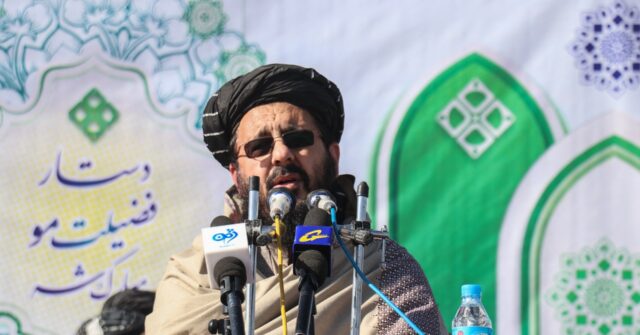The Taliban junta on Thursday announced it has withdrawn Afghanistan from the Rome Statute, the treaty that created the International Criminal Court (ICC), and no longer recognizes the jurisdiction of the ICC.
“The Islamic Emirate of Afghanistan, as an entity that defends the religious and national values of the Afghan people under Islamic sharia, does not recognize any obligations to the Rome Statute or the institution established based on it called the International Criminal Court,” said Taliban representative Hamdullah Fitrat.
“The previous administration’s accession to this statute has no legal standing,” he added, referring to the elected government that was violently overthrown by the Taliban after President Joe Biden’s disastrous withdrawal from Afghanistan in August 2021.
Fitrat went on to complain about the ICC acting on “political considerations” instead of “adhering to the principles of justice and impartiality.”
Fitrat further charged the ICC with not taking “any significant measures against the war crimes committed in Afghanistan by the occupying forces and their allies,” meaning the deposed elected government and its Western allies.
Afghanistan ratified the Rome Statute and joined the ICC in 2003, two years after the previous Taliban regime was ousted by a U.S. invasion.
The Taliban probably made up its mind to withdraw in late January, when ICC chief prosecutor Karim Khan requested arrest warrants for Taliban Supreme Leader Hibatullah Akhunzada and his chief justice, Abdul Hakim Haqqani, for crimes against humanity and the persecution of women.
“These applications recognize that Afghan women and girls as well as the LGBTQI+ community are facing an unprecedented, unconscionable and ongoing persecution by the Taliban,” Khan said in January.
The Taliban have relentlessly persecuted women since seizing power in 2021, blocking them from jobs, education, and even using public spaces.
When one of the Taliban’s deputy foreign ministers said last month that he thought women were being treated unfairly, Akhunzada ordered him arrested, and he fled to the United Arab Emirates (UAE).
In January, Akhundzada issued a decree that said buildings in Afghanistan could not have windows in any room that might be occupied by a woman. Owners of existing buildings were ordered to block the sight lines to any portal that a woman might peer out from.
“Seeing women working in kitchens, in courtyards or collecting water from wells can lead to obscene acts,” a spokesman for the Supreme Leader explained.
The women of Afghanistan might well have argued with this reasoning, except Akhundzada had already banned their voices from being heard in public the previous September.
Contrary to Fitrat’s complaint, the ICC actually did seek permission in 2017 to investigate actions taken by the U.S. military and other Western forces during their long occupation of the country. This request probably slipped the Taliban’s collective mind, because the ICC wanted to investigate Taliban atrocities at the same time.
Read the full article here


